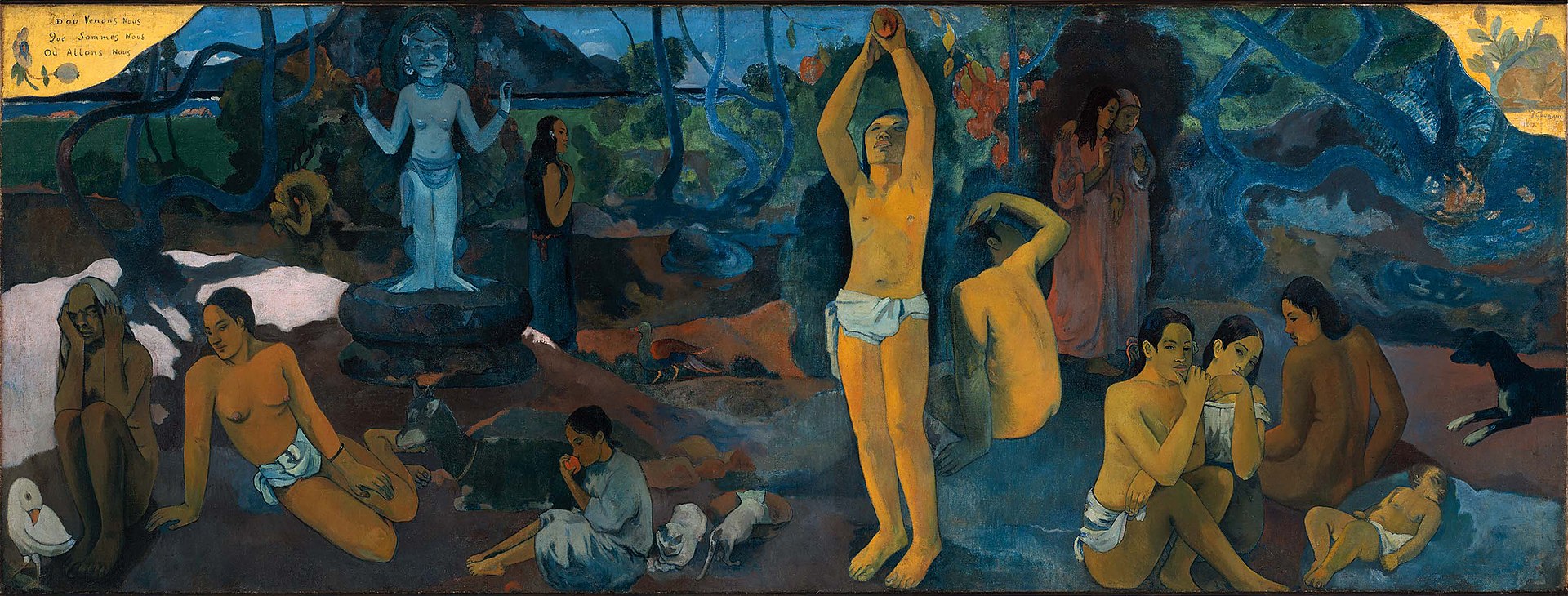

Meaning scientist. Entrepreneur. Polymath. Broadcaster.
Game modder. Software developer. Linguist.
Social and political commentator.
Free speech crusader.
The Man with the MRGA Hat.
The Jordan Peterson Guy.
Make Reality Great Again.
“I have sworn upon the altar of God eternal hostility against every form of tyranny over the mind of man”
—Thomas Jefferson
BUY MAKE REALITY GREAT AGAIN HATS – CLICK HERE
Whence “meaning scientist”?
The most general, all-encompassing subject of my academic inquiry is people. What are people? How did we come to be the way we are? Why did we come to be the way we are—if there is even an answer to that question? How do we act in the world? How should we act in the world? These questions are perhaps best summed up by Paul Gauguin’s beautiful painting D’où venons-nous? Que sommes-nous? Où allons-nous? (“Where do we come from? What are we? Where are we going?”), which is on display at the Museum of Fine Arts in Boston, and which is reproduced here below.

As a linguist, my main areas of interest are theoretical linguistics (the question of what language is exactly and how we should study it, as well as how we should study individual languages), semantics (the relation between linguistic form and meaning), typology (what kinds of structures exist in the world’s languages), psycholinguistics (what the processes by which we understand and produce language are like), cognitive linguistics (what cognitive functions—that is, thoughts, memories, perceptions, beliefs, emotions, and so on—tell us about language), evolution of language (how language came to be, which entails how we evolved from a species that didn’t use language to one that does), and linguistic anthropology (what language tells us about human nature).
Outside of linguistics, I’m mainly interested in anthropology more generally (what culture and society tell us about human nature), especially musical anthropology (what music tells us about human nature), population genetics (how humans spread around the world and how they are related to each other), psychology (the study of mental processes), philosophy of mind and language (what the mind is and how it relates to language, the body, cognition, and consciousness), cognitive science more generally (how thoughts, memories, and so on work), and comparative mythology (the similarities and differences between the myths of various cultures, and what they say about human nature and origins).
All of these research areas are connected (indeed, everything is connected) and I realized over the course of time, while working on them, that they all center around a central concept: meaning, both in the semiotic sense of how signs relate to their referents, and in the existential sense of what things signify to the individual. They pertain to the question of how humans navigate their surroundings. This is “being-in-the-world”, the Dasein of Heidegger. This is at the core of what I want to research scientifically. Hence “meaning scientist”.
Note: when I say “main areas of interest” or “mainly interested”, this means that although I find other things interesting as well, they are beyond the scope of my research. Of course, humans are animals, so in order to truly understand humans, one has to understand how animals function and we evolved from other animals; animals, in turn, are a specific type of life that lives on Earth, so in order to truly understand animals, one has to study both life (biology) and Earth (geology). All my areas of interest are nested within these; they themselves are in turn nested within chemistry and physics, which require mathematics for their explanation. For this reason, I believe everyone in the humanities and the social sciences should have at least some background knowledge, and preferably some interest, in the exact sciences as well.
Page last updated: 3 October 2021.
This page is best viewed in Netscape Navigator 3.0 with a resolution of 1024 x 768 px.
